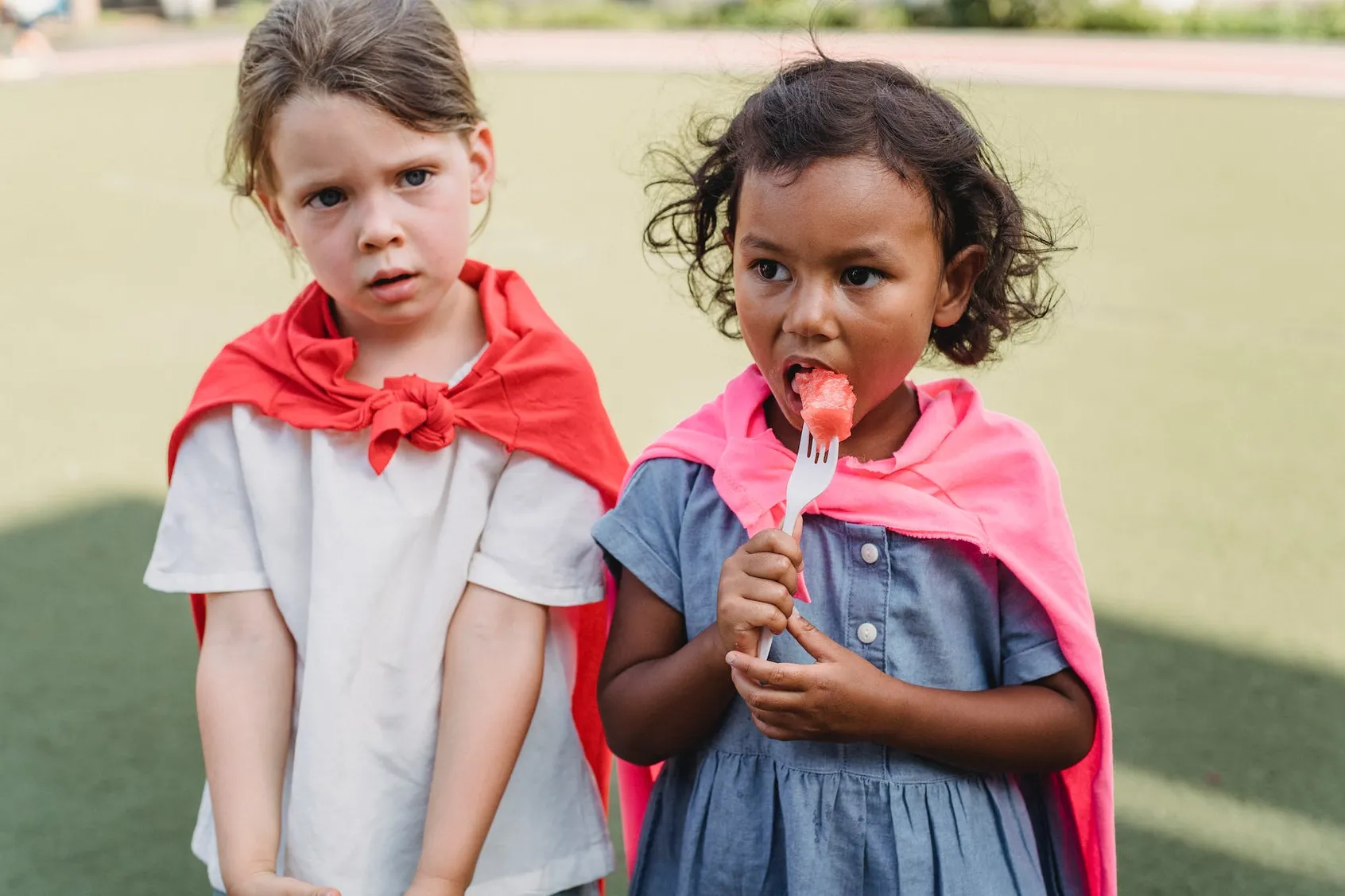Interracial marriages have become increasingly common in recent years, with studies showing that the number of interracial marriages has risen significantly across the United States.
This trend has been fueled by society’s increasing acceptance of different races and cultures and the growing number of interracial couples. But are interracial marriages successful?
This essay will explore the success of interracial marriages by examining the factors that contribute to the success of these marriages, as well as the challenges that interracial couples may face.
Are Interracial Marriages Successful?
Interracial marriages between two people from different racial backgrounds have become increasingly common in the United States over the past several decades. While these unions are typically celebrated for their progressiveness, research has shown that certain interracial marriages may be more prone to divorce than others.
In particular, studies have found that marriages between white and black people have the highest divorce rate of any interracial marriage in the United States. This finding has been attributed to the unique struggles that often arise when two individuals from different racial backgrounds attempt to build a life together.
The racial history of the United States is often cited as a primary source of difficulty for interracial marriages between white people and black people. The centuries-old legacy of slavery and segregation has left a lasting imprint on the social and cultural fabric of the nation, and the long-term implications of this history can still be felt today.
Racial discrimination, unequal opportunity, and a lack of understanding between groups often lead to conflict and tension within interracial marriages. These issues can be compounded by the fact that many people from the majority white population lack a basic understanding of black culture or the lived experiences of black people in the United States.
In addition to the racial dynamics of interracial marriages, other factors such as socioeconomic status, education levels, and religious beliefs can also contribute to marital strain. Disparities in income and social class can create tension within a relationship, as can differences in educational levels or religious beliefs. These factors can make it difficult for an interracial couple to build a strong and lasting relationship.
The high divorce rate of white-black interracial marriages is troubling, but it is not an insurmountable obstacle to a successful relationship. Through open communication, mutual respect, and a commitment to understanding each other’s differences, couples can work to create a successful and fulfilling marriage.
Couples should also strive to cultivate a strong family and friends support system who can provide guidance and assistance. With the right approach, couples can find success in an interracial marriage, no matter their racial background.

Benefits Of Interracial Marriages
Interracial marriages come with several benefits, both for the couple and society. Here are a few:
- Cultural exchange and understanding: Interracial marriages allow couples to learn about and appreciate different cultures, traditions, and perspectives. This can help break down stereotypes, foster empathy, and promote cross-cultural understanding.
- Increased diversity: As more people from different racial and ethnic backgrounds marry, it helps promote diversity and reduces racial homogeneity in society. This can lead to a more accepting and inclusive society.
- Improved genetic diversity: Interracial couples have the potential to produce offspring with greater genetic diversity, which has been linked to stronger immune systems and better overall health.
- Personal growth: Interracial marriages can challenge couples to confront and overcome their biases and prejudices, leading to personal growth and greater self-awareness.
- Stronger relationships: Research suggests that interracial couples may have stronger relationships and are more likely to have successful marriages, possibly because they have to navigate more complex issues related to race and culture.
Disadvantages Of Interracial Marriage
Interracial marriage has become more common in recent years, with the rate of marriages between partners of different racial backgrounds increasing dramatically. Despite this, there are still many risks associated with interracial marriage, such as:
- Cultural/religious differences: Couples from different backgrounds may have different values and traditions that can be difficult to navigate or negotiate within a relationship.
- Difficulty recognizing family dynamics: When each partner comes from a different cultural background, it can be difficult to understand how certain family relationships should be handled or respected in the marriage.
- Unexpected stress due to racism or prejudice: Interracial couples may experience unexpected stress due to discrimination and prejudice from others in the community and their families. This could lead to tensions within the marriage as well.
- Limited support systems: Interracial couples may be unable to rely on shared family networks or find support systems they are both comfortable with, which could lead to feelings of loneliness or isolation within the marriage.
Reasons For The Increase In Interracial Marriages
The increased acceptance of interracial marriages over the past few decades has been remarkable. While in the past, interracial relationships were typically frowned upon, today, more couples of different ethnicities are exploring the possibility of marriage. This change can be attributed to several factors.
- First, modern society has become more tolerant and accepting of different cultures and races. With the growth of diversity in cities across the US, it is becoming more common for people to come in contact with and learn about different cultures. This has led to an increase in understanding and acceptance of different cultures. Additionally, the media’s portrayal of interracial relationships has been more positive, likely contributing to the increasing acceptance of interracial marriages.
- Second, advances in communication technology have made it much easier for people of different backgrounds to connect. Online dating and social media sites have made meeting people of different ethnicities easier. This has also made it easier for couples of different backgrounds to stay connected, even if they live far away from each other.
- Finally, the legalization of interracial marriage in 1967 was a major milestone in the fight for equal rights. This landmark decision made it possible for couples of any race to marry legally and made it socially acceptable.

The Impact Of Interracial Marriages On Children
Interracial marriages have become more common in recent years, and they have the potential to impact children in several ways positively. Children who grow up in interracial homes may be exposed to different cultures and traditions, which can broaden their understanding of the world and promote tolerance and acceptance of diversity.
Research has also shown that interracial children may have stronger problem-solving skills and be more open-minded due to their exposure to different viewpoints and backgrounds. This can be a valuable asset in the workplace and their relationships.
However, it’s important to note that interracial marriages and children can also face challenges. They may experience discrimination or judgment from others and struggle with a sense of identity or belonging. Parents must address these issues with their children and provide support and guidance.
What Are The Financial Implications Of Interracial Marriages?
Interracial marriages have become increasingly common in the last few decades as society has become more accepting of different cultures and races. As this trend grows, people are considering the financial implications of interracial marriages.
For example, research has shown that couples in interracial marriages tend to have lower incomes than couples in same-race marriages. This could be due to various factors, such as the difficulty both parties face in finding work in their chosen profession or the prejudice they face in the workplace. Additionally, interracial couples may also face higher living expenses because of the need to purchase more culturally appropriate products and services.
Furthermore, couples in interracial marriages may also experience a decrease in their net worth due to the cost of obtaining necessary documents and visas for one another.
This can be a high cost, especially if one partner comes from a different country than the other. Couples may also experience a decrease in their tax benefits because they may be unable to file jointly. This could result in higher taxes and a decrease in overall household income.
Finally, couples in interracial marriages may also face increased healthcare expenses. Insurance companies may not cover treatments specific to one partner’s culture or race. For example, some insurance companies may not cover traditional treatments such as acupuncture or herbal remedies, which could increase the cost of healthcare for couples in interracial marriages.
How Interracial Marriages Affect Society?
Interracial marriages have always been a controversial topic in society. Over the last few decades, however, the number of interracial marriages has increased significantly. As more and more people marry outside of their race or ethnicity, it is important to understand how these marriages affect society.
The success of interracial marriages has been attributed to several factors. One major factor is the improved acceptance of interracial relationships in society. People are more tolerant of interracial couples and, as a result, more willing to accept them. This acceptance has allowed couples to feel more comfortable entering into such relationships.
Additionally, interracial couples have the advantage of gaining exposure to different cultures and backgrounds, which can help them understand each other better and build strong relationships.
Furthermore, interracial marriages can have a positive influence on society. By breaking down racial barriers and allowing people of different backgrounds to connect, interracial couples can promote diversity and understanding.
Additionally, they can provide examples of how couples of different backgrounds can live together harmoniously. This can serve as a positive example for others in the same situation and help to create a more inclusive and accepting society.
Finally, interracial couples may also experience some unique challenges. Cultural differences can be difficult to navigate, and couples may have to find ways to bridge the gap between their backgrounds.
Furthermore, couples may also experience discrimination from members of their respective communities. Despite these challenges, however, couples can work to overcome them and create a strong, healthy relationship.

The Role Of Family And Friends In Supporting Interracial Marriages
Family and friends play a major role in supporting interracial couples. Having the support of family and friends can provide moral and emotional support that can help interracial couples cope with any issues that may arise from being in an interracial relationship.
Support from family and friends is particularly important for interracial couples who may not have the same cultural background as one another. With support, interracial couples are more likely to be comfortable discussing any cultural differences that may arise.
When family and friends are supportive, interracial couples are more likely to be able to deal with any external stress that may be present. When family and friends are supportive, it can also reduce the amount of external stress that may be placed on interracial marriage. This is important because external stress can cause several issues within a marriage, such as communication breakdowns, trust issues, and a lack of intimacy.
In addition to providing moral and emotional support, family and friends can also provide practical support. This can include helping financially or assisting with childcare or other household tasks. This can help interracial couples focus on their relationship rather than worrying about their marriage’s financial or logistical aspects.
The Role Of Religion In Interracial Marriages
While it is true that there are still many places where interracial relationships are not accepted, the trend is moving toward greater acceptance. One factor that has been suggested as playing a role in the success of interracial marriages is religion. Religion can play a significant role in accepting a relationship by providing a framework that can help couples navigate the complexities of interracial marriage.
Religious communities can offer a supportive environment in which couples can address the challenges of interracial marriage. This can include guidance on how to navigate family dynamics, cultural differences, and societal pressures.
Religion can also provide a sense of community and connection, which can help couples to feel accepted and supported. In addition, many religious organizations have developed programs and initiatives to address the challenges of interracial relationships.
Couples can better understand and appreciate one another by having the opportunity to talk openly and honestly about their beliefs. Religious communities can also allow couples to explore their shared beliefs and values. This can help bridge the cultural gap and foster a greater understanding between couples.
Finally, religion can provide a spiritual connection that can help couples feel closer to one another and supported in their relationship. This can help to provide couples with a greater sense of security and stability, which can be invaluable in interracial marriages.
Common Challenges Faced In Interracial Marriages
Interracial marriages can be challenging due to differences in cultural backgrounds, traditions, and values. Some common challenges faced in interracial marriages include:
- Cultural differences: Couples may have different beliefs, customs, or lifestyles, leading to misunderstandings, conflict, or even discrimination from others.
- Family and societal pressure: The couple may face opposition from family or society due to cultural or racial differences, leading to stress or isolation.
- Communication barriers: Language and communication styles may differ, leading to misunderstandings or difficulty expressing emotions or thoughts.
- Expectations and assumptions: Each partner may have different expectations or assumptions about marriage or family life, leading to disagreements or disappointment.
- Identity and self-esteem: The couple may struggle with issues of identity or self-esteem due to societal pressures or discrimination, leading to stress or insecurity.
- Parenting challenges: Children may struggle with identity or cultural issues, and the couple may need to navigate how to raise children in a multicultural environment.
Despite these challenges, many interracial marriages are successful and fulfilling. Open communication, mutual respect and understanding, and a willingness to learn and compromise can help couples overcome these challenges and build a strong, loving relationships.
How To Overcome Prejudice And Discrimination In Interracial Marriages?
Interracial marriages face a lot of prejudice and discrimination, which can be difficult to overcome. Understanding the root causes of this prejudice, such as fear of the unknown and ignorance, is important to understand how to address them better. Additionally, it is important to create a sense of acceptance and understanding to create an atmosphere where interracial couples can be comfortable and accepted.
One tactic for overcoming this prejudice is for the couple to openly discuss their relationship, differences, and experiences with loved ones and friends. This can help to create a sense of understanding and acceptance on both sides. Additionally, addressing any negative comments or behaviors experienced is important to create an atmosphere of acceptance.
Through dialogue, understanding, and respect, it is possible to help create an atmosphere where interracial couples can experience success in their relationships and help reduce the prejudice and discrimination they face.
How To Build A Strong Interracial Marriage?
Building a strong interracial marriage is a challenge that many couples face. Interracial marriages are between individuals from different racial, ethnic, or religious backgrounds. Such marriages have become increasingly common in recent years as people from different backgrounds have become more open to marrying someone from a different background. For such marriages to be successful, there are certain steps that couples need to take.
- First, it is important for couples to be open and honest with each other. This means that couples should be willing to discuss openly any issues or concerns that arise in the relationship. Couples should also be willing to compromise and accept each other’s differences. It is also important for couples to be patient with each other, as it can take some time to get used to each other’s culture and lifestyle.
- Second, couples should ensure they are both committed to the relationship. This means they should be willing to work together to make the relationship work and make it as strong as possible. Couples should also make sure that they are both on the same page when it comes to their expectations of the relationship.
- Couples should ensure they are willing to learn from each other. This means that couples should be open to learning about each other’s cultures and backgrounds. Couples should also be willing to try new things and explore different relationship aspects. This can help to strengthen the bond between the two people.
- Finally, couples should ensure they are both willing to communicate. Communication is essential in any relationship, and this is especially true in interracial marriages. Couples should be willing to talk openly and honestly about their feelings, concerns, and expectations. This will help to ensure that the relationship remains strong and healthy.
Conclusion
In conclusion, interracial marriages have come a long way in the past few decades and are now more accepted than ever. They can be a source of love, mutual understanding, and respect. Despite lingering stereotypes and prejudices, interracial marriages continue to grow in popularity and acceptance. By understanding the challenges of such unions and finding ways to overcome them, couples can create strong, lasting relationships that can ultimately enrich the lives of all involved.
Frequently Asked Questions:
What is the success rate of interracial couples?
The success rate of interracial couples is difficult to measure because there is no single definition of what constitutes a successful relationship. However, research has shown that interracial couples report higher relationship satisfaction and commitment levels than same-race couples. Additionally, studies have found that interracial couples have lower rates of divorce and breakup than same-race couples.
What are the advantages of interracial marriage?
Interracial marriage promotes diversity and inclusivity, allowing individuals to learn about different cultures and traditions. It creates unique relationships free from race or ethnicity limitations and exposes children to different languages and customs. Interracial marriage can reduce prejudice and discrimination by fostering acceptance and understanding among racial groups.
Which ethnicity has the highest divorce rate?
The highest divorce rate is among Native American/American Indian couples, followed by White couples.
How common is interracial marriage in the united states?
Interracial marriage in the United States is becoming increasingly common. According to the most recent U.S. Census Bureau data, 19% of all marriages in the United States in 2019 were between spouses of different races or ethnicities. This is a significant increase from 3.2% of all marriages in 1980. Even public approval of interracial marriage noticeably rose from around 5% in the 1950s to 94% in 2021.
Are there any difficulties associated with interracial marriage?
Yes, there can be difficulties associated with interracial marriage. Depending on the countries involved, these can include cultural differences, family and peer pressure, language barriers, and even legal issues. Additionally, couples in interracial marriages may face discrimination from those opposed to such unions.
What cultural differences should be considered when entering an interracial marriage?
When entering an interracial marriage, it is important to consider cultural differences such as language, religious beliefs, food preferences, family customs, and acceptable forms of communication. Additionally, it is important to recognize the potential for prejudice and discrimination that may be faced due to the couple’s racial differences and to have open and honest conversations about how to handle these potential challenges. Lastly, it is important to recognize that each partner has a unique background and culture and to celebrate and embrace these differences as part of the marriage.
